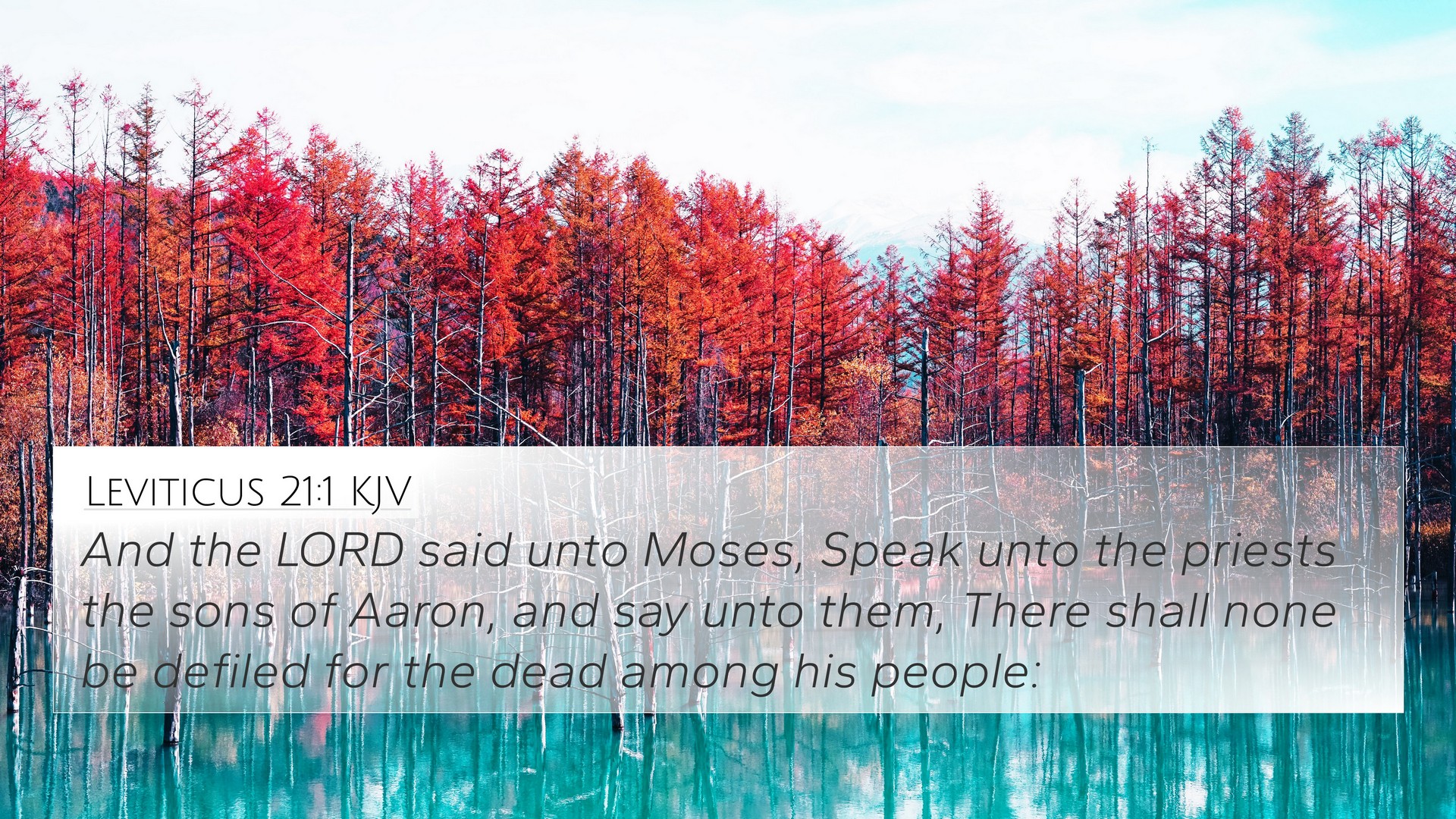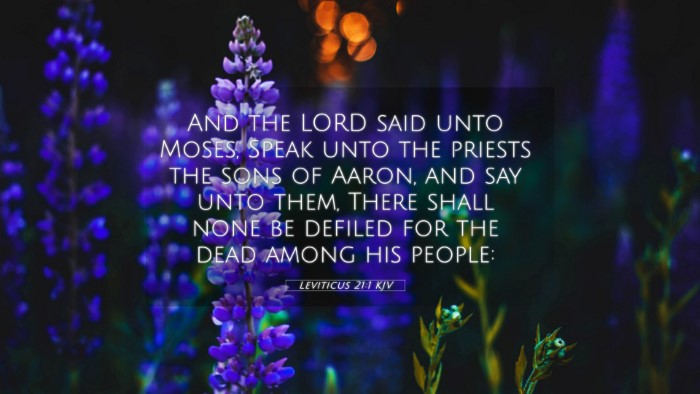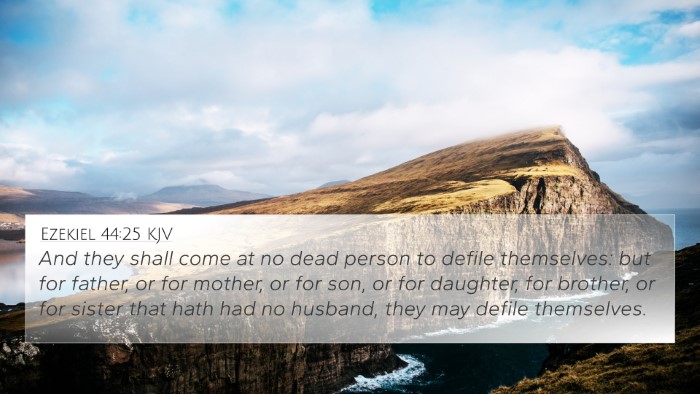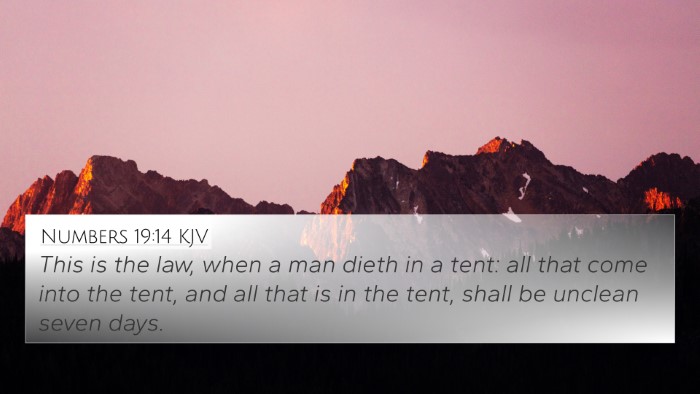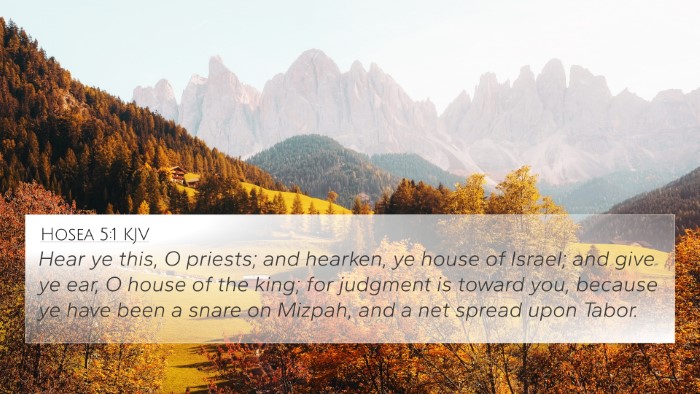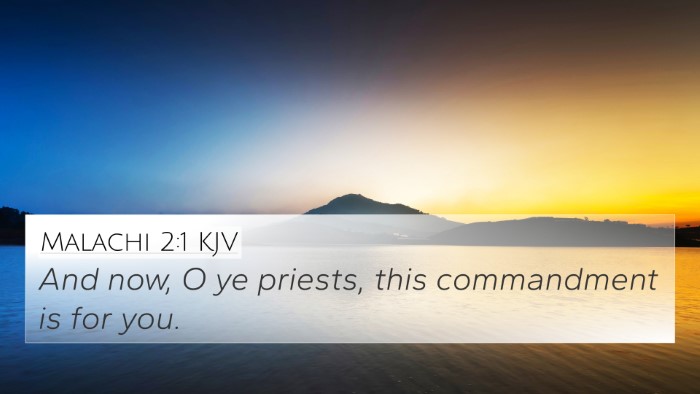Understanding Leviticus 21:1
Verse: Leviticus 21:1 - "And the Lord said unto Moses, Speak unto the priests, the sons of Aaron, and say unto them, There shall none be defiled for the dead among his people."
Overview of the Verse
The verse presents a directive from God to Moses concerning the conduct of the priests, specifically the descendants of Aaron. It establishes a rule about ritual purity and the role of priests in maintaining holiness while interacting with the dead.
Commentary Insights
- Matthew Henry:
Henry emphasizes the necessity of priests to be holy, and that their ceremonial purity was crucial for their service. This verse sets boundaries to ensure they do not defile themselves by contact with the dead, underscoring the importance of spiritual cleanliness in worship.
- Albert Barnes:
Barnes notes that this instruction was vital for preserving the distinctiveness of the priestly office. It highlights God's expectations of separation from activities that could blemish their sanctity, linking this to the broader theme of holiness as a prerequisite for service to the Lord.
- Adam Clarke:
Clarke elaborates on the implications of this command in terms of cultural practices at the time. He explains that while mourning and caring for the dead is essential, priests are set apart for higher responsibilities that require stringent adherence to purity laws.
Thematic Connections
This verse connects well with various themes found throughout the scriptures, especially the dichotomy of life and death, holiness and impurity, and the responsibilities of spiritual leaders.
Related Bible Cross-References
- Numbers 6:6: "All the days that he separateth himself unto the LORD he shall come at no dead body." - A further reinforcement of separation from the dead for holiness.
- Ezekiel 44:25: "And they shall come at no dead person to defile themselves; but for father, or for mother, or for son, or for daughter, for brother, or for sister that hath had no husband, they may defile themselves." - Details exceptions for relatedness in mourning.
- Leviticus 10:10: "And that ye may put difference between holy and unholy, and between unclean and clean." - Establishing the need for discernment in holiness.
- Exodus 28:36: "And thou shalt make a plate of pure gold, and grave upon it, like the engravings of a signet, HOLINESS TO THE LORD." - A reminder of the calling for the priestly role.
- 1 Peter 2:9: "But ye are a chosen generation, a royal priesthood, an holy nation..." - The New Testament parallels in the call to holiness for believers.
- Hebrews 7:26: "For such an high priest became us, who is holy, harmless, undefiled, separate from sinners..." - Drawing connections with Christ as our high priest.
- Matthew 23:27: "Woe unto you, scribes and Pharisees, hypocrites! For ye are like unto whited sepulchers..." - The significance of external appearances versus internal purity.
Practical Applications
The principles derived from Leviticus 21:1 can inform modern readers about the importance of maintaining spiritual integrity and setting boundaries against defilement.
It encourages believers to examine their lives and spiritual practices, questioning what influences may compromise their ability to serve God effectively.
Conclusion
Leviticus 21:1 is a pivotal instruction for the priests, emphasizing holiness and separation from the dead. This verse resonates through the Bible, reinforcing the themes of purity and the responsibilities of those who serve in spiritual leadership. Understanding these themes not only provides insight into Old Testament practices but also enriches the broader interpretation of holiness in the New Testament context.
Further Study and Cross-Referencing Techniques
Utilizing a Bible cross-reference guide can enhance your study of the scriptures. Beneficial methods of cross-referencing Bible study include examining connections between Old and New Testament themes, as well as drawing parallels across the Gospels and Epistles. By identifying connections between Bible verses, you can deepen your understanding of scriptural narratives and theological concepts.
This knowledge is not only essential for personal growth but also for effective sermon preparation and teaching within the church.
